No.46 In 2024
Achievement 1
Title
Supporting the City and Nuturing People through Shared Cycling: The Heartbeat of Bicycles Culture in Sapporo
Recipient
Non-profit Organization
Porocle
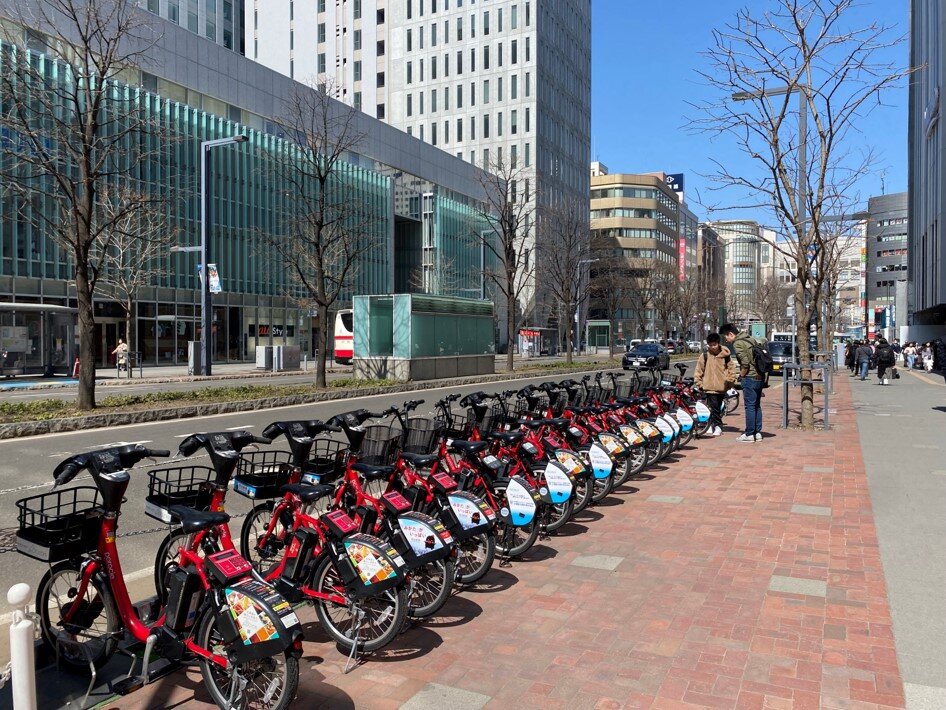
Reason for award
The share cycle program "Porocle" in Sapporo has entered its 14th year since the start of full scale service. Although sustaining a share cycle business in a regional city is especially challenging financially, Porocle has continued to expand community rooted activities in cooperation with local government and other partners, aiming to contribute to both community building and human development in Sapporo through share cycle-related initiatives.
The core share cycle business is steadily growing: about 600 electric assist bicycles now operate from roughly 60 docks across the city. Day to day field operations are handled by the "Porocle Crew," a group of young people--mainly students--working with the NPO ezorock. Their tasks include redistributing roughly 220 bicycles per day, replacing batteries, and cleaning areas around the docks.
Porocle is also proactive in raising service quality through ICT. All bicycles are equipped with GPS, enabling the team to monitor usage areas and adjust bicycle and dock placement. They regularly propose improvements to the share cycle system and dedicated app, making the service more user friendly. Additional efforts include co developing Mixway, Japan's first integrated route search system that covers bicycles and other public transport modes, and providing data for academic research.
Traffic safety and environmental conservation campaigns form another pillar of Porocle's community work. Each year they organize numerous safety events, street campaigns, and helmet wear promotion activities. Because Sapporo's snowy climate hampers the growth of bicycle culture (e.g., winter cycling to school is not allowed), every Crew activity is treated as a hands on safety demonstration: hand signals while riding, walking bikes on sidewalks, and other model behaviors. These activities also serve to train Crew members as future leaders in bicycle safety.
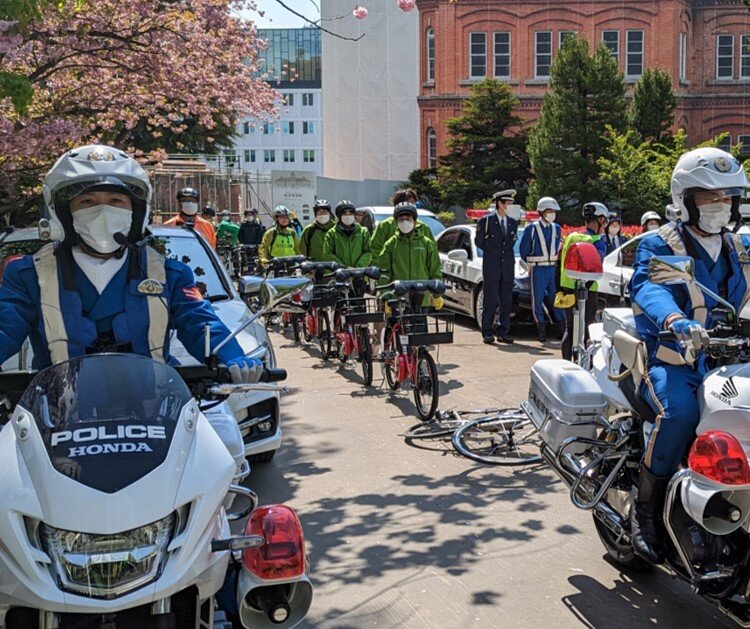
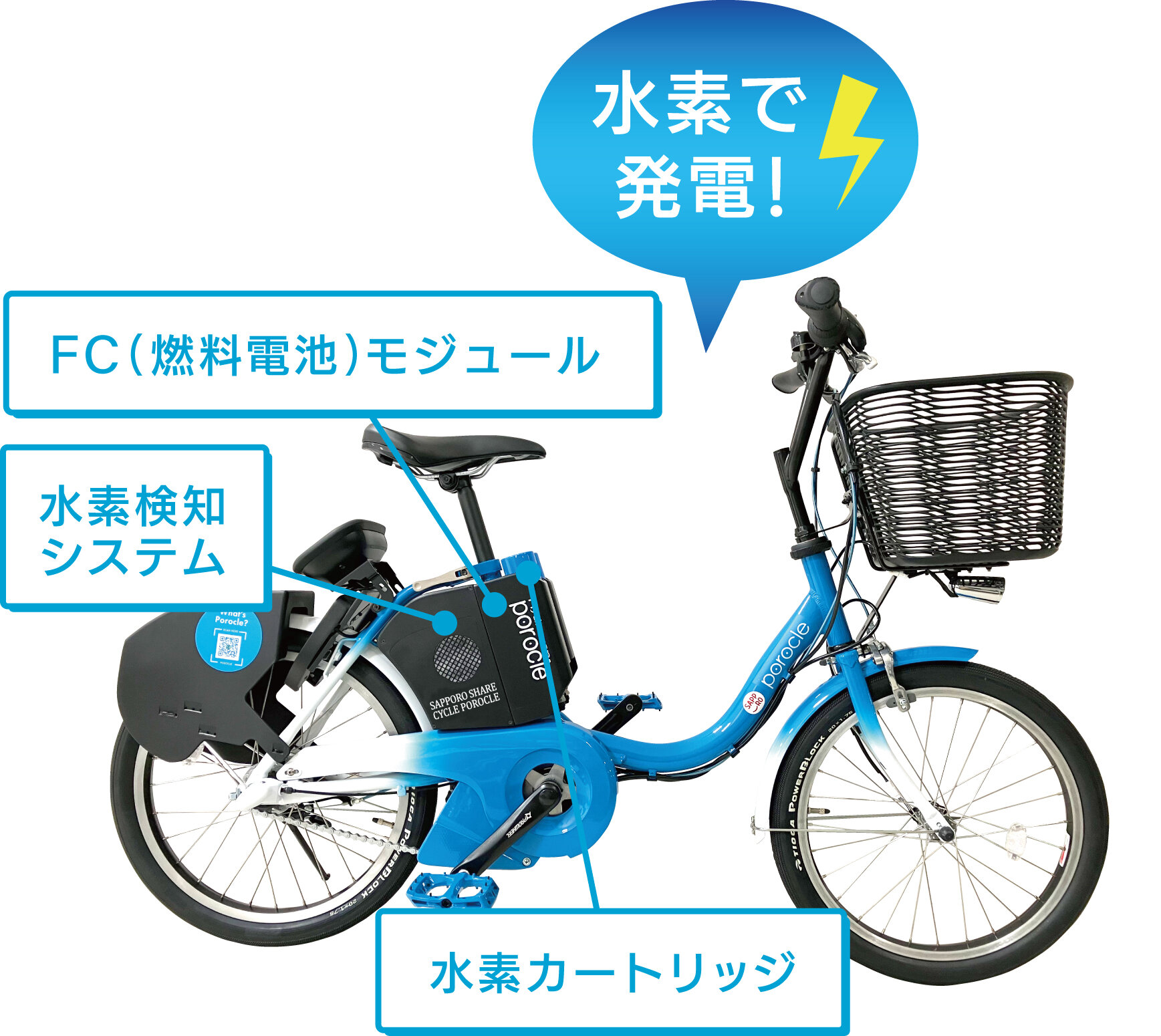
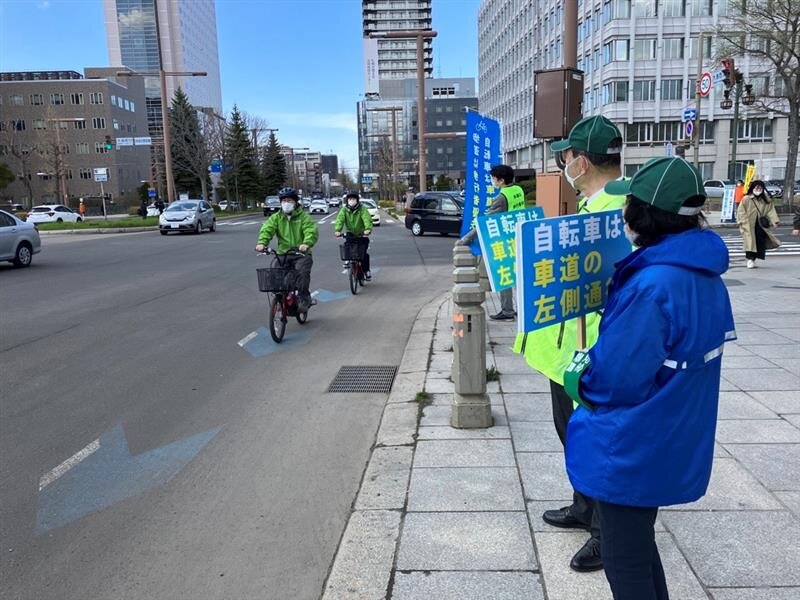
Porocle contributes to disaster resilient community building as well. It has agreements with Sapporo City and the Sapporo Construction Office, Hokkaido Development Bureau, Ministry of Land, Infrastructure, Transport and Tourism to lend bicycles and spare batteries free of charge during disaster recovery operations and to disseminate disaster information to users.
Other initiatives include abandoned bicycle countermeasures, bicycle frame advertising, and tourism oriented services for growing inbound visitors--coupled with system tweaks to enforce good manners and rules. In line with Sapporo's pursuit of a hydrogen society, Porocle is also developing an original hydrogen fuel cell assist bicycle, helping nurture local cycling culture.
Thanks to this continual, multifaceted work, annual trips rose from about 110 000 in FY2018 (15 000 members) to about 510 000 in FY2024 (90 000 members). Although the service pauses for five winter months due to snow, its reopening each spring--dubbed "Porocle Opening Day"--is now a fixture in local media, showing how deeply the program and related town building efforts are embedded in citizens'lives.
Porocle's evolution into a vital part of the local transport system demonstrates how a series of community based mobility projects can mature into a social system that supports and nurtures regional towns and their residents. The International Association of Traffic and Safety Sciences highly praises this program as a model project contributing to the ideal traffic society the association seeks to realize.
Achievement 2
Title
Public-Private Co-Creation and Regional Revitalization Telework:
Pioneering Local Mobility Innovation
Recipient
Shiojiri City
Reason for award
Shiojiri City lies almost at the geographic center of Nagano Prefecture. JR Shiojiri Station--where the Chūō Main Line splits east-west--connects northward to Matsumoto and Nagano and has long prospered as a key transport hub and post town on the historic Nakasendō highway. Unlike many regional cities that face population decline, Shiojiri has maintained a stable population of about 65 000. Seizing this advantage before the demographic challenge becomes acute, the city launched pioneering initiatives to attract leading transport related companies. Under the banner of "Shiojiri City Transportation DX," a co creation framework now links more than 20 major firms, government ministries, academia, and civic groups.
Within this framework, autonomous driving demonstrations began in 2020. That fiscal year saw Level 2 trials with taxi vehicles and minibuses; FY 2021 added infrastructure linkage; and FY 2022, selected for an MLIT demonstration survey, introduced signal light integration and remote monitoring--steadily proving feasibility.
In FY 2023 the city purchased an EV bus, enabling long term tests. Daily public exposure to the vehicle boosted social acceptance, and accumulated results led to two milestones: vehicle approval under the Road Transport Vehicle Act (31 Oct 2024) and "specified autonomous operation" authorization under the Road Traffic Act (9 Jan 2025). Level 4 deployment is now ready for real world use.
Because the EV bus tops out at 35 km/h, Level 4 introduction demanded many extra checks--such as emergency response to changing road environments--beyond those for <20 km/h green slow mobility vehicles. Shiojiri's small municipal staff nonetheless solved these issues, and a three week Level 4 demonstration run began on 23 January.
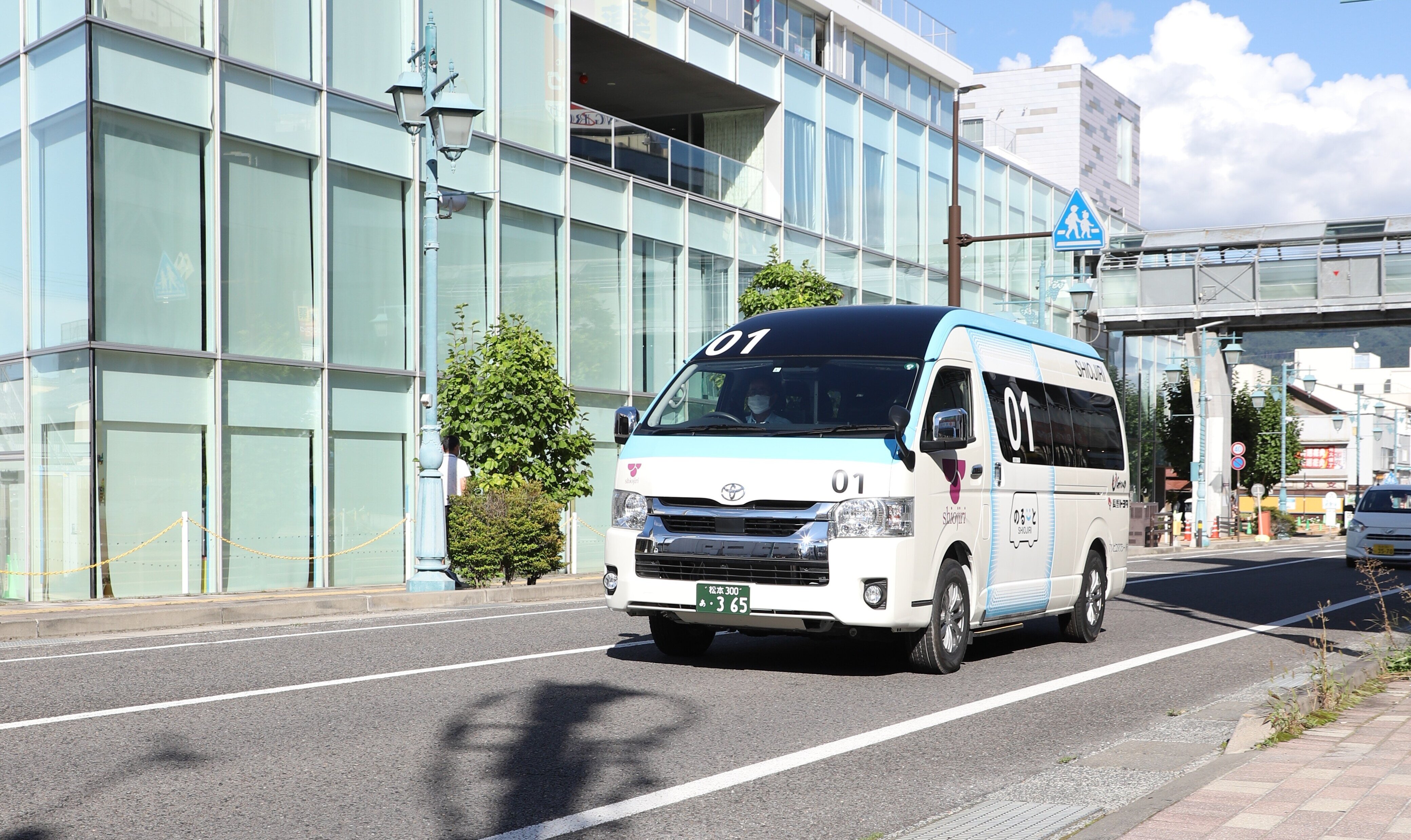
As part of its MaaS efforts, Shiojiri also runs an AI powered on demand bus. Users choose date and boarding/alighting points via a smartphone app and share a ride to their destination. With 381 "meeting point" bus stops city wide, convenience is high, and the service does not compete with the community bus it replaces. Since its 2020 launch, it has carried more than 130 000 passengers in five years, revealing latent mobility demand; some routes may revert to fixed schedules as needs evolve.
Supporting these services is KADO, an innovative self managed telework program created in 2010 to "give anyone who wants to work the chance to do so." About 800 people are registered. KADO members produced the 3 D road maps essential for autonomous driving and handle phone reservations for users uncomfortable with smartphones. Funds thus flow to local teleworkers rather than outside contractors, achieving true local production and consumption of both labor and costs. The KADO model could transform municipal management in many regional cities.
These multifaceted, pioneering initiatives in Shiojiri are highly regarded for their potential to serve as a model for other regional municipalities.
